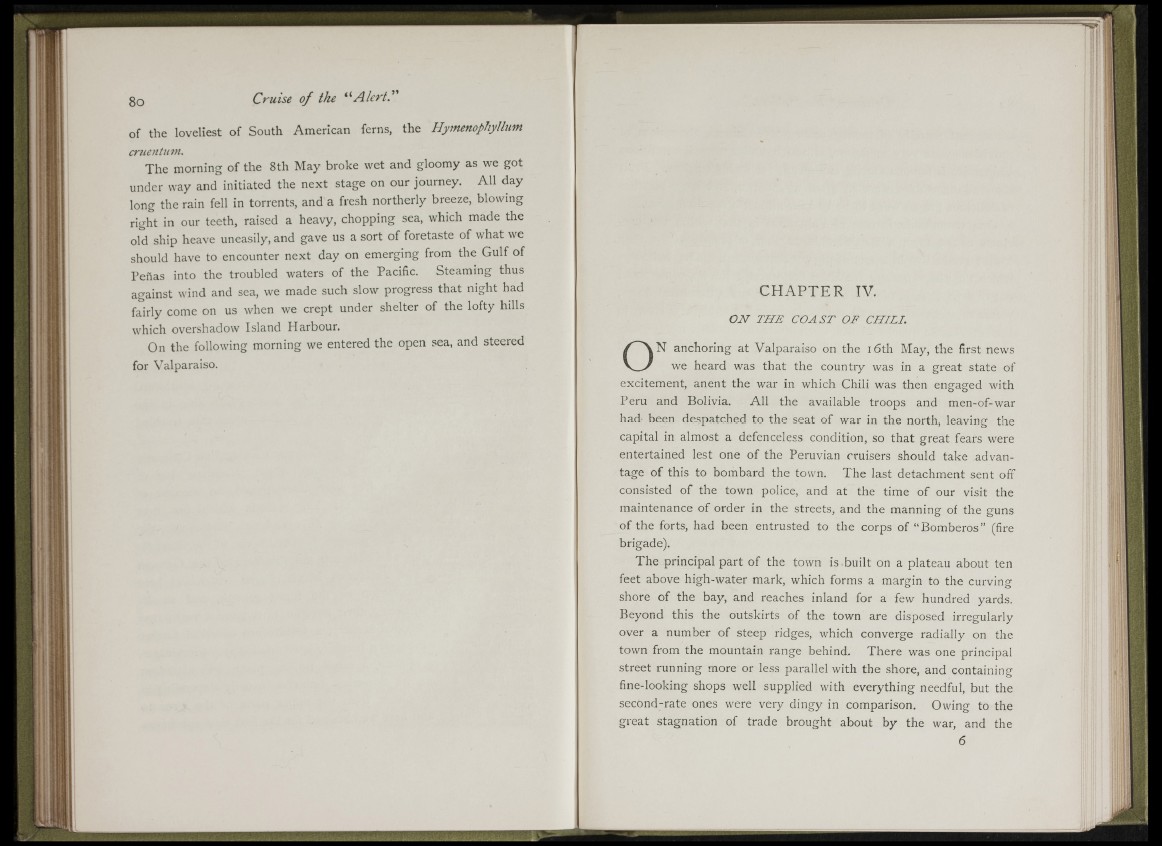
l á
Cruise o f the “A lert.”
of the loveliest of South American ferns, the Hymenophyllnm
cruentum.
The morning of the 8th May broke wet and gloomy as we got
under way and initiated the next stage on our journey. All day
long the rain fell in torrents, and a fresh northerly breeze, blowing
right in our teeth, raised a heavy, chopping sea, which made the
old ship heave uneasily, and gave us a sort of foretaste of what we
should have to encounter next day on emerging from the Gulf of
Peñas into the troubled waters of the Pacific. Steaming thus
against wind and sea, we made such slow progress that night had
fairly come on us when we crept under shelter of the lofty hills
which overshadow Island Harbour.
On the following morning we entered the open sea, and steered
for Valparaiso.
CHAPTER IV.
O N TH E C O A S T O F CH IL I.
ON anchoring at Valparaiso on the i6th May, the first news
we heard was that the country was in a great state of
excitement, anent the war in which Chili was then engaged with
Peru and Bolivia. All the available troops and men-of-war
had been despatched to the seat of war in the north, leaving the
capital in almost a defenceless condition, so that great fears were
entertained lest one of the Peruvian cruisers should take advantage
of this to bombard the town. The last detachment sent off
consisted of the town police, and at the time of our visit the
maintenance of order in the streets, and the manning of the guns
of the forts, had been entrusted to the corps of “ Bomberos” (fire
brigade).
The principal part of the town is built on a plateau about ten
feet above high-water mark, which forms a margin to the curving
shore of the bay, and reaches inland for a few hundred yards.
Beyond this the outskirts of the town are disposed irregularly
over a number of steep ridges, wTich converge radially on the
town from the mountain range behind. There was one principal
street running more or less parallel with the shore, and containing
fine-looking shops well supplied with everything needful, but the
second-rate ones were very dingy in comparison. Owing to the
great stagnation of trade brought about by the war, and the
6
i l l IIIIIF
■rñ ! ; Ijiii’l i ’ .
in Ü! 1 liili ii